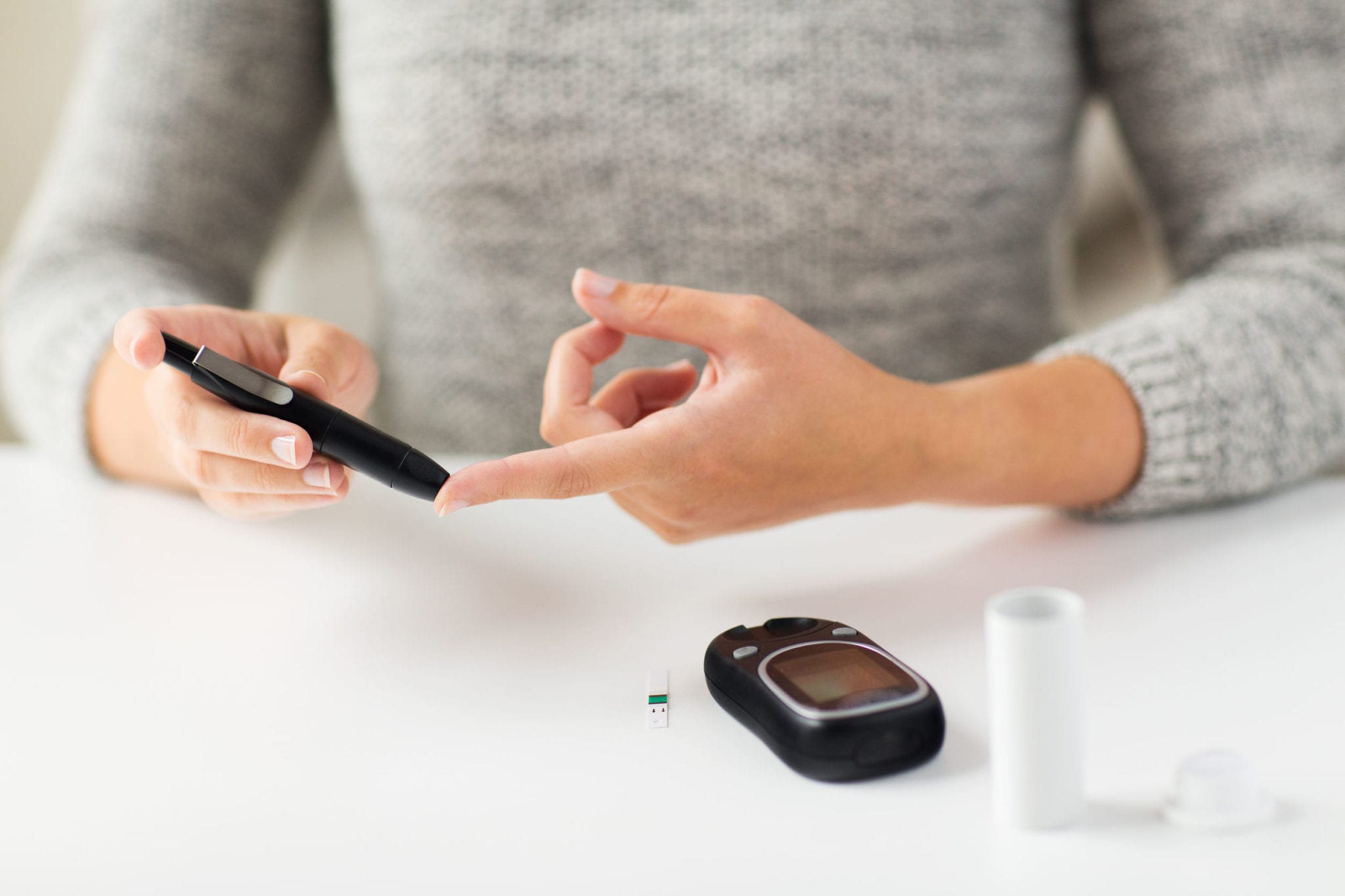
Diabetes is a systemic disease, and therefore affects many aspects of your health, including your oral health. People with diabetes may have a compromised immune system and impaired wound healing, and are therefore more likely to develop dental problems.
Fortunately, you can help mitigate this risk by educating yourself about potential problems you may encounter, maintaining regular dental care, and following a specialized oral care regimen designed to help prevent common oral health problems encountered in diabetic patients.
Below, we cover why those with diabetes are more likely to develop oral health problems, which conditions are more likely and, most importantly, how to prevent them.
The Link Between Diabetes and Poor Oral Health
Everyone’s mouth is home to billions of bacteria. Some of these bacteria are even beneficial to your oral health. However, some types of bacteria cause tooth decay, gum disease and other health problems.
Diabetes, especially uncontrolled or poorly managed diabetes, compromises your body’s immune system, allowing these bad bacteria to take hold and wreak havoc in your mouth. On top of this (as mentioned above), diabetes also impairs wound healing, meaning that the natural healing process for cuts and abrasions isn’t as efficient.
Oral Health Problems Commonly Encountered in Diabetic Patients
There are a few oral health problems that occur more commonly and/or are more severe in people with diabetes:
- Periodontal disease. In this disease, the bad bacteria in your mouth inhabit your gums, leading to widespread inflammation and even damaging the gums, making tooth loss likely. Periodontal disease is more likely in those with diabetes, and is also more severe in diabetic patients than in non-diabetic patients. Further, periodontal disease may make your blood sugar harder to control, perpetuating a vicious cycle. Fortunately, there are many strategies to help prevent periodontal disease.
- Dry mouth. If your mouth does not produce enough saliva, this leads to dry mouth. Dry mouth is not only uncomfortable, but may actually increase the risk of dental caries (tooth decay).
- Oral thrush. Because diabetes compromises the immune system, you may develop oral thrush, which is caused by a yeast overgrowth.
- Mouth ulcers: The impaired wound healing of diabetes coupled with a compromised immune system makes sores or ulcers of the mouth more likely, and also more severe.
Oral Care Tips for Diabetic Patients
Fortunately, you can help prevent these oral health problems and keep your mouth healthy by developing a diabetes dental health action plan. Your dentist can help you develop a regimen that best fits your individual needs, but in the meantime there are some common guidelines that can help prevent diabetic oral health problems:
- Control blood sugar levels. High blood sugar is the primary risk factor for diabetic dental complications, and controlling your sugar levels will help your body fight off any oral infections. Your endocrinologist can help you develop a plan that’s right for you, but the following general guidelines apply to most cases of diabetes:
- Use your diabetes medications as directed.
- Change to a healthier diet that is low in carbohydrates and saturated fats, and high in protein and polyunsaturated fatty acids.

- Get enough exercise. Even light exercise, if practiced regularly, will help control your blood sugar and boost your mood. It maybe easiest to start with a physical activity you enjoy anyway, such as walking.
- Avoid smoking. Smoking makes gum disease worse, and may even make diabetes itself worse, along with increasing your risk for a myriad of other health problems. If at all possible, quit smoking. Your healthcare provider or public smoking cessation resources can help you quit.
- Maintain regular dental checkups. Go to your dentist every six months for a checkup, and make sure to tell your dentist that you are diabetic. Ask your dentist about specific at-home care to help decrease your risk of oral health problems. Also, ask your dentist or hygienist to demonstrate these at-home care techniques so that you’re clear on everything.
- Keep your doctor and dentist on the same page. It’s important that your primary care physician and dentist are in regular communication. Worsening diabetes increases the risk of oral health problems, and oral health problems may also worsen diabetes, or be a warning sign that diabetes is poorly controlled.
- Practice good oral hygiene. Brush your teeth twice a day, being sure to use proper technique. Proper busing takes two minutes – most adults do not brush their teeth for that long, even if they think they do! Use a stopwatch a few times to get an idea of how much time you really need to brush. When brushing, use a soft bristle brush, and make short, gentle strokes. Pay extra attention to the gum line, and to hard-to-reach back teeth. You can also brush your tongue for fresher breath. Make sure to floss at least once per day, also using proper technique. Be sure to replace your toothbrush whenever it starts to wear, or every three months, whichever comes first.

Follow these tips and you’ll have a far better chance at both controlling your diabetes and maintaining good oral health. For more information specific to you, consult with both your doctor and your dentist.






